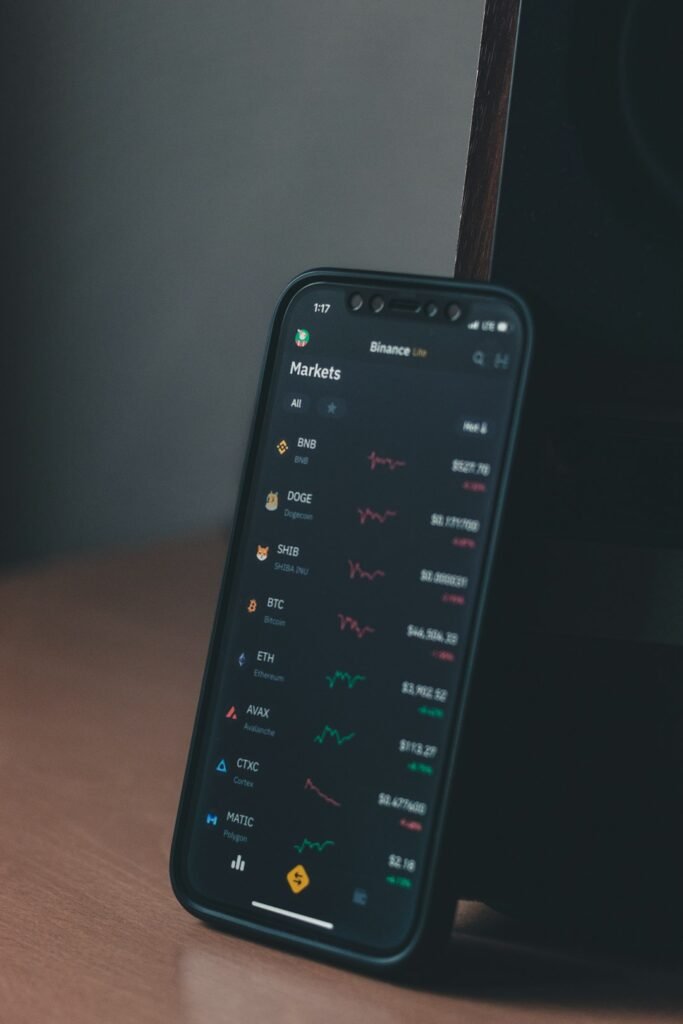Your Crypto Safety Nightmare: How Exposed Seed Phrases Become Deadly Traps
The YouTube Comment That Should Have Screamed "SCAM!"
Imagine scrolling through cryptocurrency videos when you stumble upon this comment: “I have a question. I have USDT stored in my wallet, and I have the seed phrase. How to transfer my funds to another wallet?” Right below it, the commenter had brazenly pasted their entire 12 or 24-word seed phrase for the world to see.
Even a crypto novice knows this is digital suicide. Sharing your seed phrase is like handing over the keys to your bank vault. Alarm bells should ring deafeningly. And they should have. This comment, and others like it appearing under finance videos, were not cries for help from clueless newbies. They were meticulously crafted bait in a sophisticated sting operation targeting the greedy and the unscrupulous.
The Elaborate Trap: When the Thief Becomes the Victim
Let's dissect the scam. A seed phrase (or recovery phrase) is the master key to a cryptocurrency wallet. Anyone possessing it gains complete, irreversible control over all the assets within. Seeing one publicly posted is like finding a vault door wide open. The scam assumes someone dishonest will inevitably try to loot it.
Here’s how the trap snaps shut:
- The Enticing Bait: The scammer posts the seed phrase from a newly created account, posing as a naive user. Anyone checking the associated wallet finds it holds a tempting amount of USDT (a stablecoin pegged to the US dollar) – say, $8,000 worth. Greed kicks in.
- The Fatal Flaw: To move USDT on networks like TRON (TRC20), you need to pay transaction fees in the network's native cryptocurrency (TRX, in this case). The bait wallet conveniently lacks sufficient TRX for the thief to steal the USDT.
- The Costly Mistake: The would-be thief, eager to grab the "free" money, sends a small amount of TRX from their own personal wallet to the bait wallet to cover the gas fee needed to transfer the USDT out.
- The Vanishing Act: Instead of funding the bait wallet, the TRX sent by the thief is instantly diverted. It doesn't land in the bait wallet at all; it goes straight to a third, completely different wallet controlled by the scammer. The thief's TRX is gone. The USDT remains untouched and unstealable.
- The Technical Twist – Multi-Signature: The secret lies in how the bait wallet is configured. It’s a multi-signature wallet. These wallets require authorization from two or more predefined parties to approve any outgoing transaction. Even after the thief pays the "fee" (which is stolen), they cannot move the USDT because they lack the second required signature. The scammer retains ultimate control. The USDT bait was never meant to be stolen; it was only ever meant to lure in victims willing to pay TRX fees.
The Ironic Sting: Scamming the Scammers
This scheme is diabolically clever. It preys on individuals with low morals who attempt to exploit someone else's perceived foolishness. The scammer poses as the helpless beginner, but the real victim is the opportunistic thief who loses their own cryptocurrency trying to steal. It’s a digital version of a sting operation, where the criminals (the thieves) inadvertently fund the very operation trapping them. While one could cynically view it as "Robin Hood" targeting other crooks, it remains theft, exploiting human greed as its core vulnerability.
The Universal, Devastating Risk of Seed Phrase Exposure
While the YouTube comment scam is a specific trap, the underlying danger – seed phrase exposure – is a catastrophic risk for any crypto holder, regardless of the scenario. The Ledger support article on fund loss underscores the absolute, non-negotiable rule:
"With your 24-word Secret Recovery Phrase, an attacker has the ability to drain all of your accounts across all blockchains without any input needed from your Ledger device."
This is the nuclear option for crypto security. If your seed phrase is compromised, every single asset in every wallet derived from it is instantly and irrevocably vulnerable. The mechanisms of compromise are varied and often insidious:
- Digital Leaks: Taking a photo of your phrase, storing it in cloud storage (iCloud, Google Drive), saving it in a file on your computer, emailing it to yourself, or using it to set up a software wallet like MetaMask. Any digital copy is a massive risk.
- Physical Theft: Someone physically finding your written-down phrase.
- Phishing & Social Engineering: Scammers posing as legitimate services (exchanges, wallet support), "helpful" individuals in forums, or even fake hardware wallet recovery sites tricking you into entering your seed phrase online or giving it to them directly.
- Malware: Keyloggers or clipboard hijackers on your device stealing the phrase if you ever type it or copy it digitally.
- The YouTube Trap: Falling for scams like the one described, where interacting with a compromised seed phrase leads to direct loss.
How Do You Know If Your Seed Phrase is Compromised?
The Ledger article provides clear indicators:
- Unauthorized Transactions: Funds moving out of your wallets without your knowledge or consent.
- Simultaneous Drains: Assets being stolen from multiple accounts (e.g., Bitcoin, Ethereum, Solana wallets) at the same time. This strongly points to seed phrase compromise, as it gives access to everything.
- The Dreaded Reality: If you knowingly entered your seed phrase anywhere other than your hardware wallet device itself (like a website, software wallet, or gave it to someone), assume it is compromised immediately.
What To Do If Your Seed Phrase is Leaked (The Only Protocol)
The moment you suspect your seed phrase is compromised, time is critical. Every second counts before your funds are drained. Follow these steps meticulously:
- DO NOT PANIC, BUT ACT IMMEDIATELY: Hesitation is your enemy.
- Isolate and Evacuate (Critical Step):
- Do NOT use your compromised wallets. Do not attempt to send funds from them using the compromised seed phrase or device linked to it.
- Set up a completely new, temporary wallet. Use a reputable software wallet or exchange account that you control and trust for this emergency step. Do not generate a new seed phrase on the same potentially compromised device yet.
- Transfer ALL remaining funds from every single account associated with the compromised seed phrase to this new temporary wallet. This is a race against the attacker draining you. Prioritize high-value assets.
- Nuclear Option: Generate a NEW Seed Phrase (On a Secure Device):
- Factory Reset your hardware wallet (like a Ledger Nano) according to the manufacturer's instructions. This wipes the old, compromised seed phrase from the device.
- Set the device up as NEW. This will generate a brand new, cryptographically random 24-word seed phrase. WRITE THIS DOWN ON PAPER ONLY. Store it physically, securely, and OFFLINE. Never digitize it.
- Never enter this new seed phrase anywhere except the hardware wallet device itself.
- Set Up New Accounts: In your wallet interface (like Ledger Live), add new accounts derived from your new, secure seed phrase. These are completely fresh addresses with no link to the compromised ones.
- Transfer Funds to Safety: Send all funds from your temporary wallet to the new, secure accounts derived from your new seed phrase.
- Assess the Damage & Report:
- Document all unauthorized transactions (TX IDs, amounts, dates/times).
- File a police report with your local law enforcement. Provide all documentation. While blockchain transactions are irreversible, a police report is essential for any potential investigation and may be required by some services later.
- Report the theft/scam to relevant platforms where the compromise might have originated (e.g., report phishing websites, scam social media accounts/comments).
Beyond Seed Phrases: Other Crypto Scams and Protections
Seed phrase compromise is the ultimate failure, but other attack vectors exist:
- Blind Signing: Signing a transaction without fully understanding its implications. Malicious smart contracts can trick you into granting unlimited spending access or transferring NFTs/assets instead of receiving them. Always verify transaction details meticulously on your hardware wallet screen before approving.
- Physical Device + PIN Compromise: If someone steals your hardware wallet and knows your PIN, they can access your funds. Keep both physically secure.
- Fake Support / Phishing: Scammers impersonating Ledger, exchanges, or other services via email, SMS, or fake websites. Legitimate companies will NEVER ask for your seed phrase.
- Malicious Approvals: Interacting with a malicious dApp might grant it permissions to spend specific tokens. Regularly audit and revoke unnecessary approvals using blockchain explorers like Etherscan's Token Approval Checker.
Fortifying Your Defenses: Non-Negotiable Crypto Security Practices
Prevention is infinitely better than cure. Adopt these practices religiously:
- The Seed Phrase Sacred Rule: NEVER, EVER share your recovery seed phrase with anyone. NEVER enter it on a computer, phone, or website. NEVER store it digitally. Only ever enter it directly into your hardware wallet device during initial setup or recovery. Store the physical backup securely (e.g., metal backup, secure safe).
- Use a Hardware Wallet: Devices like Ledger Nano provide the strongest security by keeping your private keys offline and requiring physical confirmation for transactions.
- Beware of Phishing: Double-check URLs, sender email addresses, and social media profiles meticulously. Be skeptical of unsolicited contact offering help or demanding urgent action. Bookmark official sites.
- Keep Software Updated: Regularly update your hardware wallet firmware (OS) and wallet interface software (like Ledger Live) to patch security vulnerabilities.
- Enable All Security Features: On hardware wallets, keep features like "Blind Signing" DISABLED unless you are an advanced user who fully understands the risks of the specific transaction. This prevents signing malicious smart contracts unknowingly.
- Verify, Verify, Verify: Always double-check receiving addresses and transaction details (amount, network, recipient) on your hardware wallet screen before approving. Don't trust the display on your computer alone.
- Stay Informed: Continuously educate yourself about the latest crypto scams and security threats. Resources from security firms like Kaspersky and hardware wallet manufacturers are invaluable.
- Secure Your Environment: Use strong, unique passwords and enable 2FA (not SMS) on all exchange accounts and related services. Use antivirus/anti-malware software on your computer.
The Cold, Hard Truth: No Free Lunches and No Reversals
The YouTube seed phrase scam exploits one fundamental truth: There is no free lunch in crypto. A wallet stuffed with free money, openly accessible via a public seed phrase, is always a trap. Greed blinds victims to the obvious risks.
Furthermore, the immutable nature of blockchain means transactions cannot be reversed. Once your seed phrase is leaked and funds are stolen, Ledger, exchanges, or law enforcement cannot magically retrieve your cryptocurrency. Your recourse lies solely in:
- Evacuating funds immediately if you discover a compromise early.
- Reporting the crime to law enforcement agencies (see resources below).
- Pursuing legal action – a complex and often uncertain path.
Global Resources for Reporting Crypto Crime
If you fall victim, report it:
- USA: FBI Internet Crime Complaint Center (IC3) – https://www.ic3.gov/
- Australia: ReportCyber – https://www.cyber.gov.au/report
- UK: Action Fraud – https://www.actionfraud.police.uk/
- Europe: Europol – https://www.europol.europa.eu/report-a-crime/report-cybercrime-online
- (Specific EU Countries: Links provided in the Ledger material for Austria, France, Germany, Italy, Netherlands, Spain, Sweden)
Conclusion: Vigilance is Your Vault Door
The public seed phrase scam is a stark reminder of the constant dangers lurking in the crypto ecosystem, exploiting both naivety and greed. However, the core lesson transcends this specific trap: Your seed phrase is the absolute key to your kingdom. Guard it with your life, offline and away from prying eyes or digital reach. Combine this with hardware security, relentless skepticism, and continuous education. In the world of cryptocurrency, where you are your own bank, security isn't just a feature; it's a fundamental, non-negotiable discipline. Remember, if an opportunity seems too good to be true – like finding a wallet's keys in a YouTube comment – it absolutely is. Protect your phrase, protect your assets.












